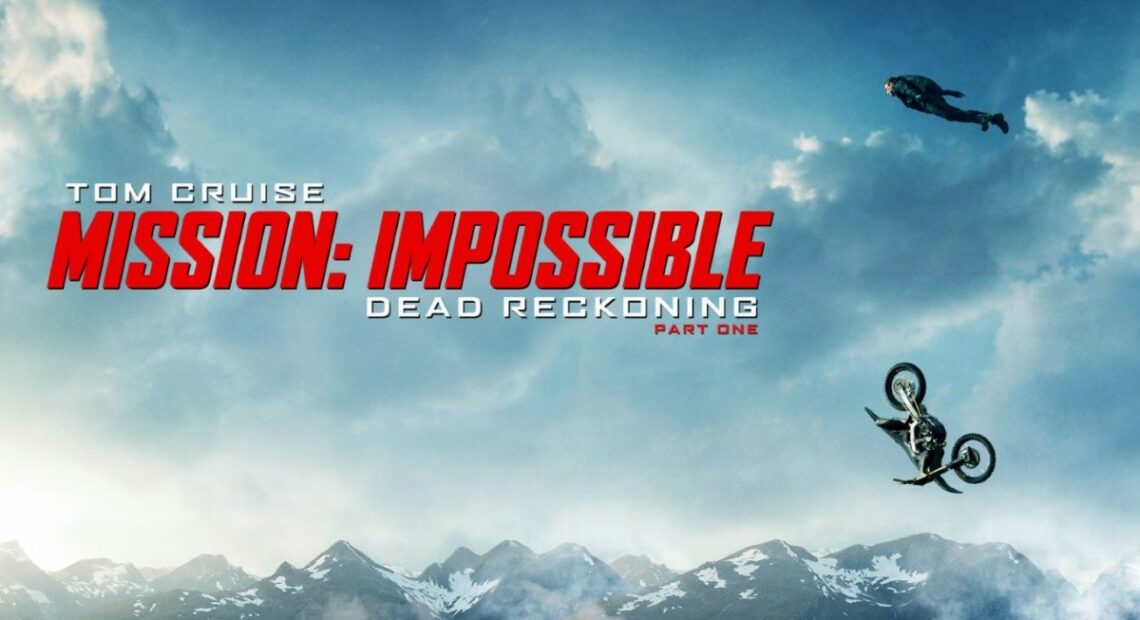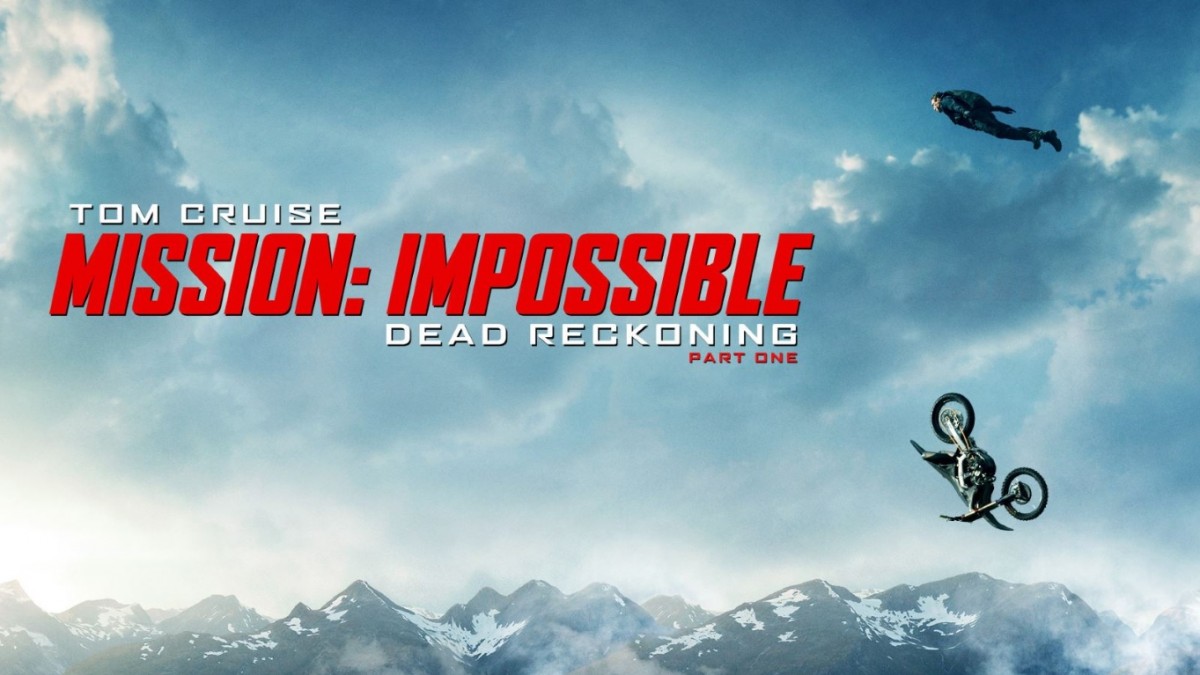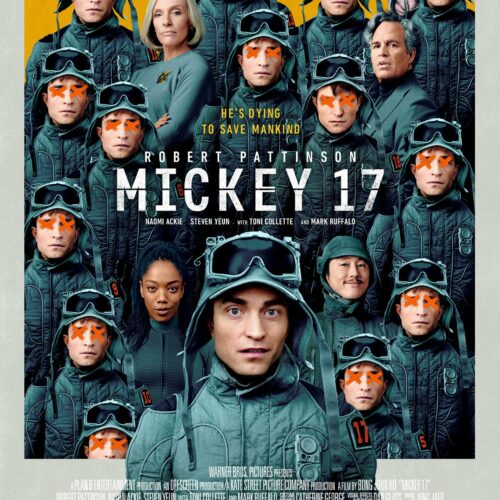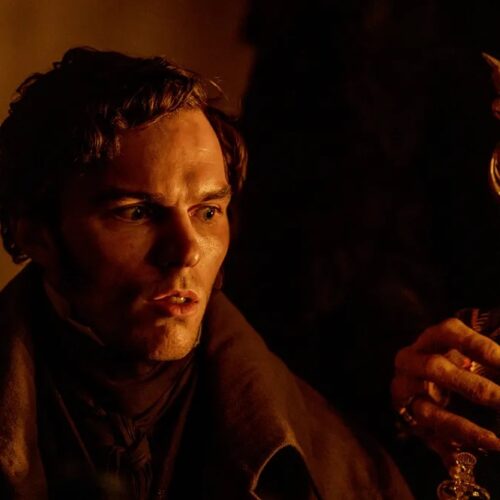
Reeder’s Movie Reviews: Mission: Impossible – Dead Reckoning Part One

When Benji Dunn (Simon Pegg) laments to Ethan Hunt (Tom Cruise) that “you’re playing four-sided chess with an algorithm,” his character couldn’t possibly have appreciated the irony of his words. The seventh and latest installment in the Mission: Impossible franchise has burst onto theatrical screens just as the actor-members of SAG-AFTRA have gone on strike. The existential threat to their craft–and their jobs–posed by AI has emerged as one of the major issues in the negotiations between the union and the major film production and streaming companies.
Meanwhile, Hunt and his team face the daunting task of neutralizing, if not destroying, “The Entity,” an artificial intelligence program with a mind of its own. Mission: Impossible – Dead Reckoning Part One ventures even further away from the concept of the original television show (1966-73), and its plot meanders in the second act. However, it hardly matters. Cruise, who serves as an executive producer, and Christopher McQuarrie, who directs his third MI film, have recreated a classic model of a commercial entertainment.
The first TV series, which earned ten Primetime Emmys during its Cold War era run, featured the same sort of covert missions as its big screen incarnation, which began in 1996. Back in the day, though, the team worked mainly in secrecy, using disguise and technology to discreetly accomplish their missions. Not any more. The scale of the movie productions and the audacity of the stunt work have steadily increased. (In yet another ironic twist, the resurrected TV show launched in 1988 occasionally made use of holographic projections of characters, a cutting-edge technology well ahead of its time.)
You’ve probably heard about the stunts in this latest Mission: Impossible. Yes, they are pretty spectacular, with Tom Cruise the star-producer determined to give you a thrill. The set pieces in Rome, the Arabian Desert and the Austrian Alps are all very cleverly staged and edited. In fact, the extended chase scene through the Eternal City, with Ethan and the newest, reluctant recruit to the team, Grace (Hayley Atwell), gets high marks for amusement value, too. As for the much hyped motorcycle-off-the-cliff-to-parachute stunt executed by Cruise, you’re not going to be disappointed. He even delivers lines of dialogue in mid-air, for good measure.
A fascinating, occasionally frustrating, aspect of the MI franchise lies in the treatment of its female characters. If you think about it, they provide the ultimate motivation for Ethan Hunt, yet they can seem disposable. The franchise has consistently introduced women whose tragic ends (sacrifices) facilitate successful mission outcomes. A parade of talented actors have come and gone as protégés, fellow agents, love interests, or personality-challenged mercenaries. For them, these assignments may, indeed, seem impossible. Grace has now accepted that challenge.
As you might imagine, “The Entity” has the seductive power of all new technologies, especially if it falls into the hands of villainous politicians or greedy billionaires. This film’s primary human personification of evil, Gabriel (Esai Morales), declares that “Truth is dying. The world is ending. War is coming.” His very name perverts the notion of God’s will in the religious sense. He has come to announce an AI apocalypse–the kind of theme perfectly suited for a blockbuster.
The reliable supporting cast here also includes the cyber-savvy Ving Rhames (Luther Stickell) and Rebecca Ferguson (Ilsa Faust), who provides both context and pathos. Christopher McQuarrie, who won an Academy Award for his screenplay for The Usual Suspects (and who contributed to last year’s Top Gun: Maverick), also co-wrote this exposition-heavy script. More importantly, though, he again betrays a gift for directing scenes with cohesion and efficiency. The big action sequences play so well because of astute camera placement and proper spacing. These scenes actually have an inner logic, greatly enhanced by the amount of stunt work performed by the actors themselves. The most recent, probably final, Indiana Jones picture suffers by comparison.
Eugene Kittridge, the former head of the IMF now resurfaced as the director of the CIA, suggests to Ethan Hunt that “This is our chance to control the truth.” Well, truthfully, your mission, should you choose to accept it, is to immerse yourself for 2 hours, 43 minutes in Mission: Impossible – Dead Reckoning Part One, with the prospect of its sequel next year. Meanwhile, this review may self-destruct, now that you’ve read it.
More Movie Reviews:

Reeder’s Movie Reviews: Mickey 17
Movie poster of Mickey 17 courtesy of Warner Bros. Pictures. Read “You don’t look like you’re printed out. You’re just a person.” In writer-director Bong Joon Ho’s new science fiction

Reeder’s Movie Reviews: A Complete Unknown
In director James Mangold’s new film, Timothée Chalamet portrays the young Bob Dylan (the professional name he adopted at age 21) from 1961-1965. He gives a remarkably nuanced, accomplished performance in a movie that occasionally gets bogged down in truncated or unnecessary scenes, but not too often. The supporting cast shines as well.

Reeder’s Movie Reviews: Nosferatu
A classic tale laced with horrific, religious, folkloric and erotic themes. Robert Eggers seemed destined to make a movie about it. Finally, after a decade of preparation, he has.















